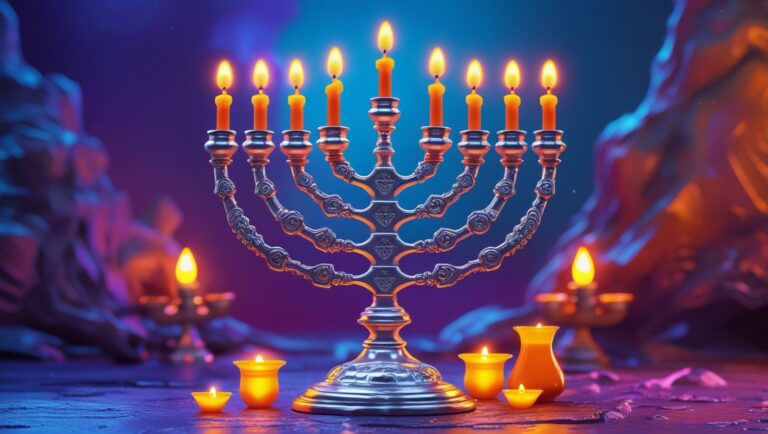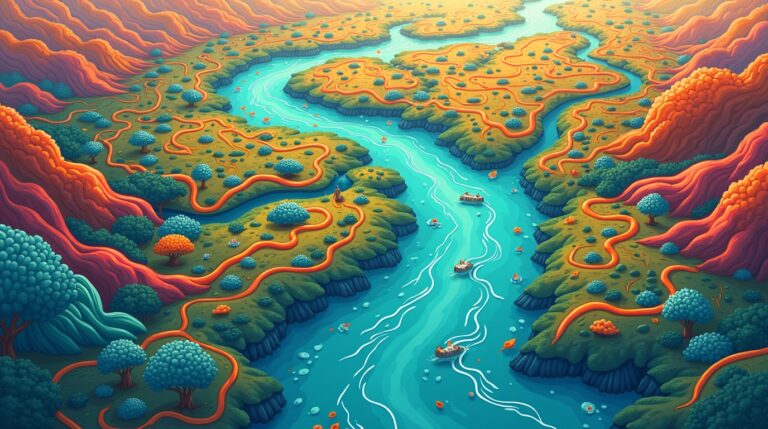Many people who ascribe to the idea of a just God have a hard time accepting the notion of reward and punishment, and that, just maybe, they are also on the wrong side of the equation.
The Zohar writes that a person’s fear of Heaven is what determines his reward in Olam HaBah. I find this idea remarkable, because it encompasses everything a person should and shouldn’t do in life. Ultimately, it also serves as the most important measuring rod on where a person stands (and will stand in Olam HaBah).
And yes, in case you are wondering, it’s perfectly possible for someone to be completely religious and still have zero fear of Heaven. More on this in another post.
If we ascribe to the idea that the Creator is also a judge, then he can punish or reward people accordingly. This, therefore, serves as a means of reinforcing morality in Creation. People wouldn’t have so much of a motivation to be good unless there’s also some sort of compensation to look forward to and punishment to be avoided.
At the same time, many people seem to have the wrong idea about how God’s scales work. Some think of Him as a punitive old man with long beard and a zapping rod. Others think of Him as an almost completely aloof entity to the woes mankind, chas v’shalom.
It should go without saying that none of these ideas are accurate at all.
I am not going to attempt to convince people of the Jewish ideas of reward and punishment because I can’t do justice to them in a single post. What I will attempt to do is summarize some of them in as concise a manner as possible, according to Kabbalah.
Continue reading this article to learn more about:
- The system of reward and punishment in Creation
- The essence of sinning
- A more balanced view toward reward and punishment
Again, I don’t hope to exhaust this topic in a single post, but let’s get started.
The Purpose of Creation and the Ultimate Good
Most religions understand this world as a testing arena for the ultimate reward, which is closeness to Hashem. While we can’t possibly fathom what this means, the Ramchal writes in his Ma’amar HaGeulah that this will be a pristine state of constant pleasure and blessings, which increases and is renewed at every moment.
Think about something you like to eat, like pizza. How much pizza can you actually eat in a day, or a week? Probably not as much as you think. Physical pleasures, no matter their nature are also limited by how much our body can receive. Going over this limit will cause the body to either reject this pleasure altogether or malfunction.
The soul has a much greater capacity and in the future, those that have fulfilled their mission and served Hashem (with fear of Heaven), will receive the strength to withstand the ultimate good and absorb it in its entirety. This is, of course, not a discreet value, but a grading continuum that increases or decreases.
Reward and punishment in the system of Creation
Many of us see life as a constant test towards perfection, but things are a more complicated than that.
According to the Jewish Sages, the physical world we perceive is the bottom link in a chain of infinite states of spirituality (also called spiritual worlds). All of these states are a revelation of and are intrinsically connected to Hashem (also called Ein Sof, “without end”).
See this article on the Introduction to Kabbalah (link to be added).
Suppose a person does something bad intentionally or not. In doing so, he causes a blemish in the spiritual worlds, therefore preventing the Divine Light from manifesting up there. As the Light comes down, it meets the blemish and is blocked from going down.
The result is that the lack is felt down here in the physical realm.
With that, pain, suffering, and diseases ensue. Pretty bad stuff.
Understanding this is crucial in order to have a new perspective on this matter though this is a massive oversimplification of what really happens.
The Jewish / Kabbalistic perspective of sinning
Adam disobeyed the one command of the Creator by eating from the fruit of the Tree of Knowledge of Good and Evil. We can’t possibly understand the depth of thought that went through Adam’s decision. In fact, the Arizal writes that there was “no physical world” before that, and in the Idra Zutra, Rashbi says the Torah was only alluding to what he really did (basically, he didn’t just pick some fruit and eat).
Nevertheless, we may have a droplet of an insight behind how God manages Creation.
It turns out that that single act of “defiance” caused a rupture in the supernal realms. Because everything is connected to everything, a “huge spiritual smudge” appeared to block the Divine Light that was being pumped into Creation, thereby affecting it on all levels. Adam’s divine consciousness was still like the sun comparable to ours (which would be a little candle), but he suffered a tremendous shock from his sublime level.
This act of “sinning” from Adam disconnected from sublime spiritual revelation. It was the single most destructive act from which we are now trying to rectify. It was unique in the sense that it caused reality to become physical, but bears some resemblance to what sinning nowadays does.
Other factors for reward and punishment and the Endgame
Not everything that happens in our lives is because of sin. Much of what we experience is in fact due to the also-very-complex system of reincarnation, which is best described in Sha’ar HaGilgulim (Gate of Reincarnations by Rav Chaim Vital). Sometimes people need to suffer because of past sins and sometimes in order to clean them up of whatever they need to rectify, though true rectification comes with Tikkunim (more on this in another post).
As for most of Creation, we are all basically cleaning up this “smudge” until now through the 613 Mitzvot and their Halachot. It’s noteworthy that in Sha’ar HaGilgulim, we learn that all souls, except for a few, participated in the sin of Adam HaRishon.
The damage done to Creation was beyond our imagination. But it’s now coming to an end and there are many signals that attest to it. One of them is the rise of women to power. Another is the recovery of the Land of Israel by the Jewish people, something that hasn’t been happening for some 2.000 years.
The final cleaning of this spiritual “smudge” will happen when Mashiach comes and wages the wars against the Sitra Achra (“other side”, evil) and elevate Creation. He’s not God, but a king of flesh and bones, who will bring peace to the world. Humanity will enter a new stage in human evolution and divine consciousness will be extremely high.
But until then, in order to receive this enormous Light, we need to clean our collective lenses of the universe, and here’s the catch: they will be cleaned one way or another. The world was created in order to receive and delight in God’s radiance. There’s no other solution and no other outcome.
There are a few stages to it according to the Ramchal and others, but a few things will happen in the end:
- A massive war will happen (clearly engineered, as we see it in the making). According to the Arizal it will last for 9 minutes.
- The 2 Mashichim, Mashiach Ben Yosef and Mashiach Ben David, will come before or during this war, and participate in it.
- They will gather the Jews, and the Third Holy Temple will be rebuilt after Israel is re-conquered (the government will fall).
- The dead will resurrect and the final judgment will happen.
- There will be everlasting peace and delight for Jews and Non-Jews who attained the requisite fear of God and did their work.
While it might seem scary at first, in truth, it will be good beyond our wildest imagination. We will be living in a perfect world with pleasure that our minds cannot conceive.
This means if we could concentrate all the pleasure and blessings we experience in this world into a single moment, it would still pale in comparison to a single moment from the “World to Come.
Concluding remarks
The system of reward and punishment by which God manages Creation is too complex to put into a single blog post.
It’s interesting to note that, while there is such a thing as reward and punishment, we are, at the same time, partners in creating our own reality. This means that events happening can often be a by-product of our own actions and not necessarily some punishment.
Knowing and being aware of this “dual system” is important for people seeking God, because one of the pre-requisites to finding true spirituality is knowing His ways in great detail.
This obviously doesn’t mean that “faithful” people are saints. Religious bad people abound in the world. Yet, while “fearing God” doesn’t make one righteous, it does make him more righteous than he would be otherwise.
How does this makes you feel?
Don’t forget to share it in the comments section below and around the Internet!







